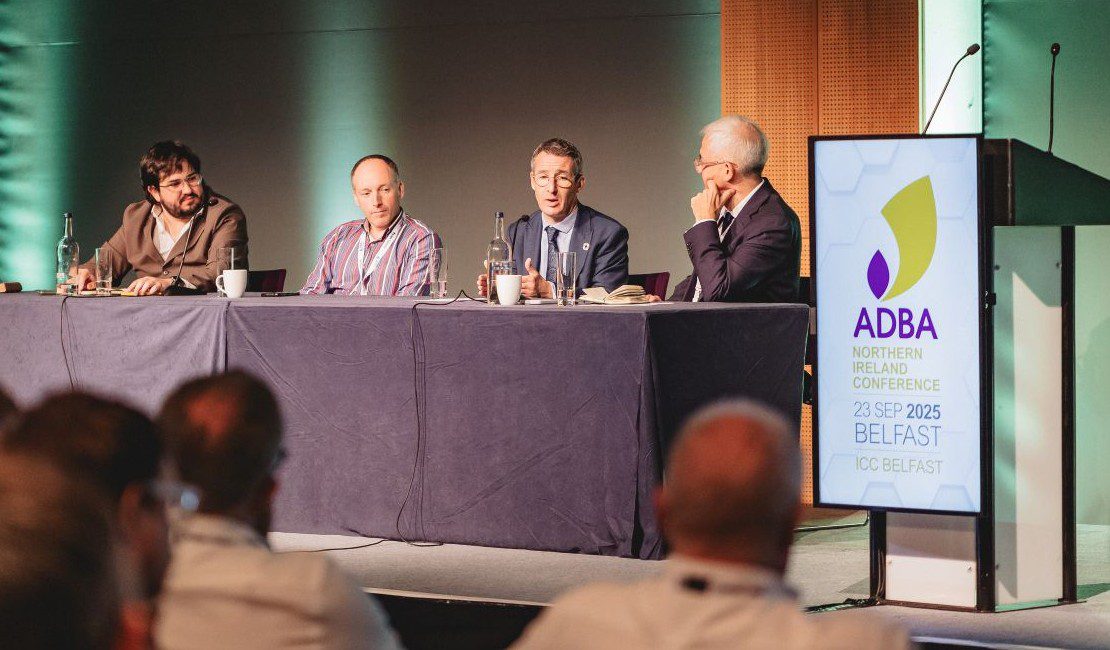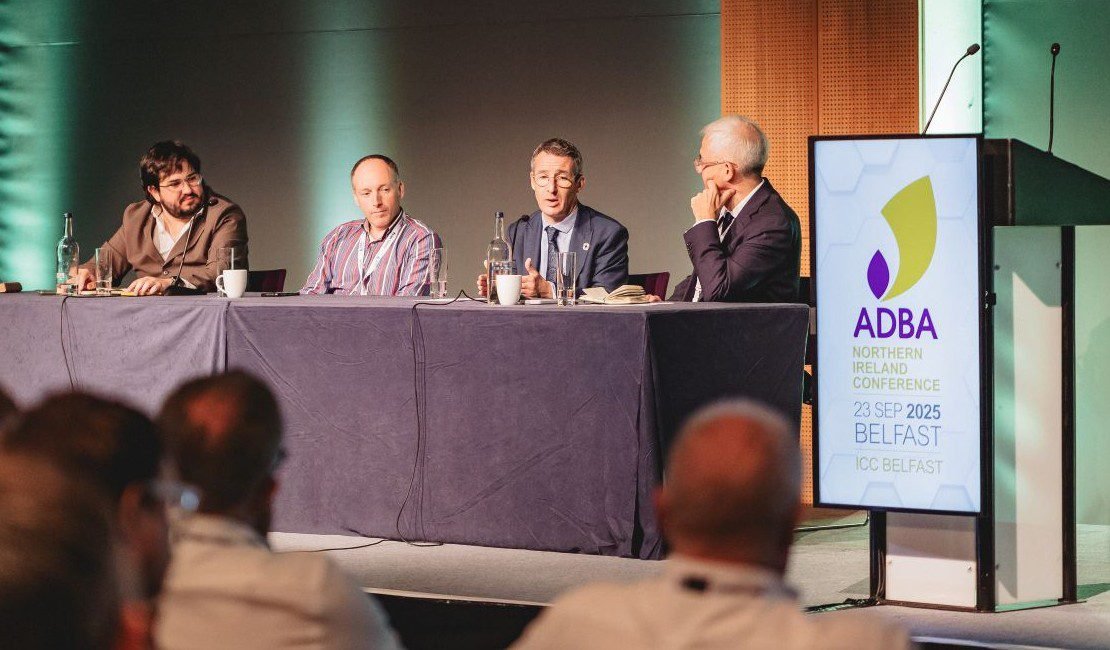
Industry leaders, policymakers, and investors gathered at the Anaerobic Digestion and Bioresources Association (ADBA) Northern Ireland Conference at the ICC Belfast last month to explore how to unlock Northern Ireland’s vast biomethane potential and cement its role in delivering the region’s net zero and circular economy goals.
Opening the conference on 23 September, Chris Huhne, ADBA Chair, emphasised Northern Ireland’s unique position: “No other region in the UK has such abundant agricultural and livestock resources. Northern Ireland has the greatest potential to lead the biomethane revolution — the question is no longer how, but why it needs biomethane?”
In a policy and market update, Dr Gareth Mottram, ADBA’s Policy Lead, highlighted that Northern Ireland could produce up to 6.5 TWh of biogas — exceeding the Republic of Ireland’s 2030 target — and reduce emissions by around 1 million tonnes of CO₂ annually. He urged policymakers to include Northern Ireland in the forthcoming successor to the Green Gas Support Scheme (GGSS) and to clarify the rules for the Republic of Ireland’s Renewable Heat Obligation (RHO).
“Biogas can support both Northern Ireland and the Republic of Ireland’s energy needs,” said Dr Mottram. With the right framework, we can save households money, support farming, and strengthen energy security. Biogas also represents a huge opportunity for export towards Great Britain.”
Government Commitment and Collaboration
Delivering the keynote address, Andrew Muir MLA, Minister for Agriculture, Environment and Rural Affairs, reaffirmed the NI government’s commitment to biomethane as part of the energy transition, explaining how it plays a clear role in tackling climate change while supporting resilient agricultural communities.
The Minister also highlighted new funding, including £50,000 for proof-of-concept projects and £9 million for shared bioeconomy projects announced earlier this month, as well as efforts to promote cross-departmental collaboration within the Northern Ireland government, notably with the Department for Economy.
Investment, Regulation, and “Joined-Up Thinking” Needed
Throughout the day, speakers from Kinecx, A&L Goodbody, Green Gas Task Force, Manby BGE, Firmus Energy, SGS, Ulster Farmers’ Union, BH Estates, Encirc, SGN Green Gas Solutions, Verdant Analytix, Vogelsang, AFBI and Anaergia called for clarity, stability, and collaboration across departments and regulators. They noted that the absence of a clear policy framework has stalled momentum since 2021.
Mark Stevenson of Kinecx noted that policy gaps and fragmented regulation were holding back investment, calling Northern Ireland to adopt a joined-up approach between the Department for the Economy and DAERA to realise its biomethane potential.
Charles McAllister of the Green Gas Task Force added that biomethane could offset up to 13% of the UK’s net zero target, urging the creation of a national biomethane target and a UK-wide case study to showcase best practice.
Circular Economy and Nutrient Management Solutions
A recurring theme across sessions was that anaerobic digestion (AD) is more than an energy solution — it’s a cornerstone of nutrient management, waste reduction, and agricultural resilience. Dr James Young of the Centre for Competitiveness presented the Mid-Ulster Eco-Cycling Centre as a model for linking agriculture, renewable energy, and local economic development.
Speakers also discussed how AD can help address the Lough Neagh nutrient pollution crisis, with calls for targeted action on the 20% of sites responsible for 80% of phosphorus runoff — creating both environmental gains and feedstock continuity for AD plants.
Making AD investable
Investors and developers stressed the need for clear market access and financial certainty. James Dorman of Manby BGE, which employs 150 people in a £300 million biorefinery project, explained that investors needed confidence — in the feedstock, in the planning, and in the policy. Given the right signals, Northern Ireland could attract large-scale green investment and export renewable gas across the island.
Next steps for ADBA in Northern Ireland
The conference concluded with a call from the attendees for ADBA to appoint a full-time policy and public affairs representative in Northern Ireland, to strengthen collaboration with the agri-food industry and policymakers, and to ensure the sector’s voice is heard in the development of future support schemes.
Reflecting on the day’s proceedings, Chris Huhne said: “This ADBA Northern Ireland conference was the most focussed yet on how we finally begin to exploit the region’s massive potential for biogas. Minister Muir showed that he understood the importance of anaerobic digestion in staunching the nutrient overload that is wrecking Lough Neagh, and it is surely just a matter of time before such a visible environmental problem is addressed.
“Northern Ireland has the resources, the expertise, and the urgency to lead the UK in biomethane production. What’s needed now is policy certainty and partnership — to turn potential into progress.
“I came away optimistic that the northern Irish sector, which has been marking time for so long, can succeed in another big push forward. In particular, it is not hyperbole to say that the future of the northern Irish livestock sector, the biggest protein producer in the UK, depends on our success. There will be no net zero in agriculture without AD, biogas and bio-fertiliser”.

